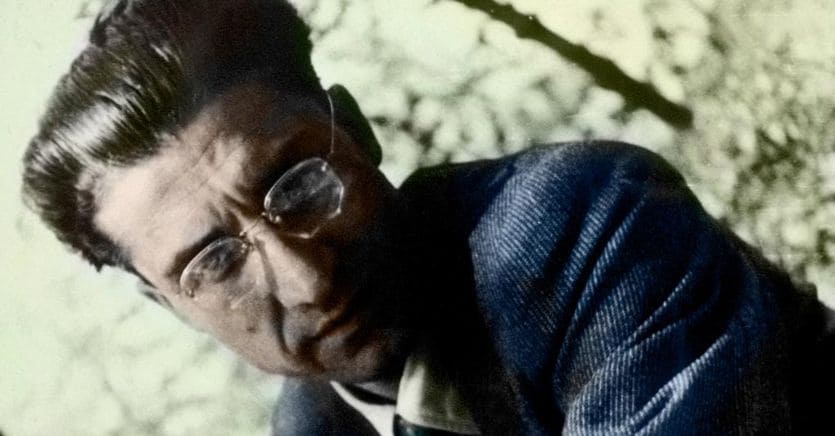Cesare Pavese was a coward. The first to realize it was himself, and the notes in his diary abound with comments to that effect. The feeling of virile inadequacy, which in the Piedmontese writer always has a precise sexual connotation, however, became even more acute after the war. Many of those Pavese frequented had gone partisans; some of his closest friends, Leone Ginzburg and Giaime Pintor, never returned. Only he seemed not to have been up to the moment. “You didn’t fight. You will never fight. Do you count anything for anyone?
A coward and, morally, a traitor
Of the many ways in which a fault can be atoned for, Pavese chose the most indirect. Sentenced by the regime to confinement, forced to hide to avoid potential retaliation by the Germans, with the Communist Party card in his pocket, when the war was over he had all the credentials to play the part of the hero. If this did not happen it was only because he himself undertook to sabotage this eventuality, letting everyone know, with interviews, press releases and reviews “inside” the publishing house, that the protagonist of the novel of his literary consecration – a coward and, morally, a traitor – he was the author himself.
Loading…
The Corrado de The house in the hills (the book that, together with The prison, forms the diptych of Before the rooster crows) is in fact a man incapable of emotional transport, who, when life offers him a second chance, making him meet again a girl with whom he had a relationship eight years earlier, Cate, and discover that her son, Dino, could be the the fruit of their love affairs at the time, he escapes: exactly as he avoids getting involved with Cate’s friends, engaged in the fight against the fascists, only to end up ambushed in the country house of his old parents, in a childhood regression on which the book closes while, around, the whole of Italy burns. An escape from history similar to that of Pavese himself.
The invitation to treat The house in the hills as a sort of open-hearted confession it profoundly marked all subsequent readings. In 1949 it was Corrado’s morality of disengagement that even made the novel an event of the cultural cold war. The “bourgeois” critics such as Emilio Cecchi and Giuseppe De Robertis, who had not a few faults to be forgiven, declared their enthusiasm for the final pages, where Corrado confronts the supreme scandal of violence by recalling the casual discovery of the corpses of some soldiers fascists who were ambushed. Although a Communist, Pavese had therefore been able to understand the reasons of the enemies: something of which the narrators of the Resistance were not capable.
The Marxist critics
Marxist critics, on the other hand, reserved their perplexities for letters and private conversations. Faced with the reproaches of his friends, Pavese then resorted to two very different defensive strategies, but not incompatible with each other. With some he simply claimed the writer’s right to stage the “tragedy” and not to silence the less reconciled elements of a civil war; but with others he protested that his ideas should not be confused with those of a character concerned only with constructing an “alibi” by manipulating his readers.
